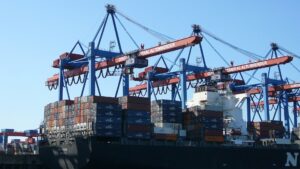New KCG Research on Trade Impact of Different National Antidumping Legislations

The World Trade Organization (WTO) has operated since its foundation in 1995 as a global system of trade rules. With WTO agreements and a number of fundamental trade principles it has formed the multilateral trading system to ensure trade to flow as freely as possible across national boundaries. The overarching goal is to encourage open trade to benefit all.
Although the WTO member states’ abilities to set tariffs are restricted by WTO rules, they are still allowed to apply some trade defence instruments to protect themselves from unfair trade practices. Antidumping duties are by far the most common trade defence instrument.
Against this background, Prof. Dr. Alexander Sandkamp (KCG, Kiel University and Kiel Institute) and Prof. Dr. Erdal Yalcin (University of Applied Sciences Konstanz) analyse in their recently published paper how varying national antidumping legislations (methodologies) within the WTO framework differ in their ability to reduce targeted imports. For their analysis on the effectiveness and efficiency of antidumping legislations, they use a combined dataset consisting of both export data at the country-pair-product-level for the years 2000–2014 and of information on antidumping duties.
The paper extends the scope of the previous related studies by considering all importing countries that imposed antidumping duties as well as all exporting countries that became subject to duties in the period of investigation. In this way, the analysis intends to provide a more comprehensive picture of the true effects of antidumping duties across all affected country-pairs. They also investigate impact differences between countries with market economy status and those without.
Their analysis shows that antidumping duties, on average, hit Chinese exporters harder than others. This difference can be traced back in part to China’s non-market economy status, which affects the way antidumping duties are calculated. Furthermore, they show that the type of imposed duty matters, as ad-valorem duties affect exports differently compared to specific duties or duties conditional on the export price. Overall, however, antidumping duties remain effective in reducing imports independent of market economy status. Last but not least, their analysis reveals that simply giving lip service to China’s status as a market economy is not enough. It is how the rules are applied by the individual member states that determines the efficiency and effectiveness of antidumping duties.
The abovementioned paper “Sandkamp, A. and Yalcin, E. (2021), Different antidumping legislations within the WTO: What can we learn from China’s varying market economy status?, Review of International Economics, published online” is available here.
Contact:
Prof. Dr. Alexander Sandkamp (KCG Senior Fellow), alexander.sandkamp@ifw-kiel.de, +49(0)431-8814-225



 KCG Projects
KCG Projects


